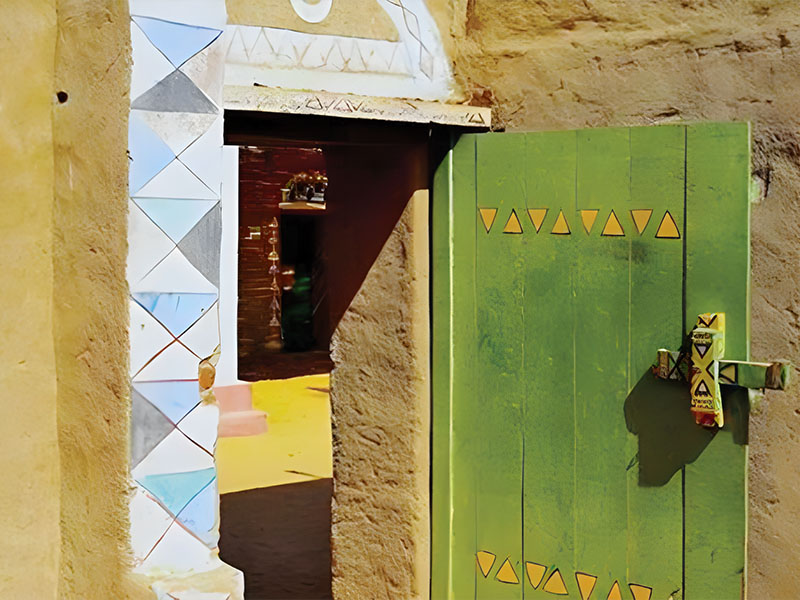The Traditional Housing of Al-Mahas In Sudan: An Anthropological Study
Issue 57

By Dr Muhammad Masad Imam Afifi
Professor of Anthropology, Faculty of African Postgraduate Studies, Cairo University
It is difficult to understand the physical framework (dwelling) in an environment without taking the human experience and the social system into account. The material framework represents more than the various behaviours of society's members; it also represents that which is more important – it is the embodiment of expressions and cultural values that take various forms and affect many aspects. From that perspective, anthropology is useful when researching housing because housing is not built at random, it is built according to the community’s culture to express its meanings.
Housing has become the focus of anthropologists' studies because it is a material aspect of cultures and, with the increasing interest in housing and the development of anthropological studies, a new branch known as Architectural Anthropology has emerged. This is a science derived from applied anthropology, and the study of architecture in often primitive societies is an introduction to the study of the culture of those societies.
Anthropology is concerned with the study of the house as the most important tool in expressing societal culture, and anthropology places a high value on it in order to gain a more comprehensive understanding of the nature of human beings.
Anthropologists have developed a range of approaches that have been applied in many fields, and we see architecture as closely related to anthropology because it is a field that encourages researchers from various fields to enter and enrich it at the same time. Anthropological research can be a useful tool for architects, particularly when determining the basic demands and needs of users, because architectural design takes needs and traditions into account within the context of the dominant culture in society.
Anthropologists are interested in the concept of the house because it represents the social functions of individuals. It is directly related to the kinship and marriage system, and it has an impact on the network of social relations.
The study of social anthropology, particularly the study of primitive societies, describes and categorises the various housing and residential systems after marriage extensively, including the system that involves living with the husband's family, the system that involves living with the wife's family or the maternal uncle, and the independent living system.







































































